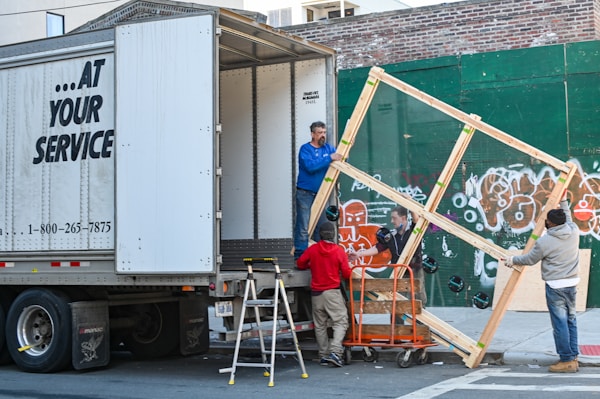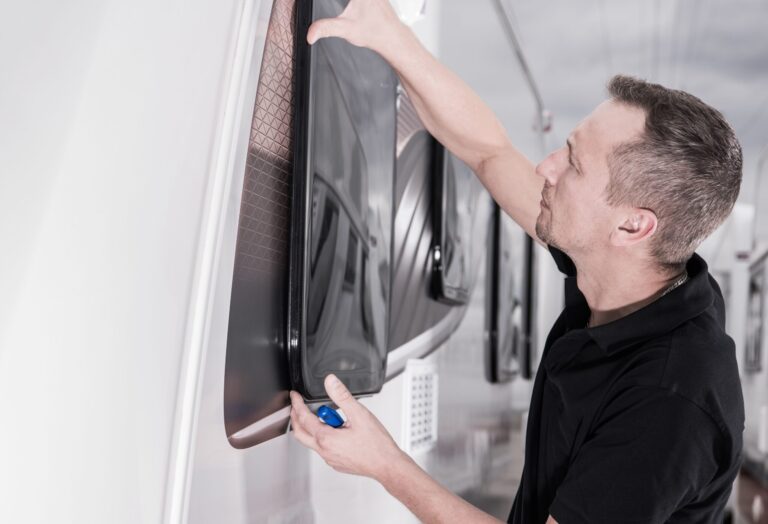Most people can agree that moving is pretty stressful. While this life change may seem daunting, it can be a relatively smooth process with careful planning. Here are some resources for moving efficiently.
Store or ship your belongings.

When it comes time to move, it’s important to remember that you don’t have to move everything with you simultaneously. In fact, there are a lot of benefits to storing your belongings during your move to make the process easier. When you store your belongings, you don’t have to worry about packing them, moving them, or unpacking them. All you have to do is pick them up when you’re done moving. Find self storage near you to start storing your belongings before your big moving day. You may also want to consider shipping your items because it can be cheaper than moving them yourself. The cost of shipping your belongings will depend on the size and weight of your items, as well as the distance of your move.
Find the right moving company.

When it comes time to move, you’ll want to make sure you’re working with a reputable and reliable moving company. There are a few things you need to keep in mind when looking for a moving company. You need to make sure they are licensed and insured, so you know your belongings will be safe. If something happens to your belongings during the move, you want to be sure they are covered. You also want to make sure the company has a good reputation by checking online reviews or asking your friends for recommendations. You should also get quotes from several companies before deciding on one. Be sure to ask about all the fees involved, such as packing and loading fees. Once you have chosen a company, be sure to read the contract carefully. Make sure you understand all the terms and conditions before signing. If you have any questions, don’t hesitate to ask.
Buy plenty of packing supplies.
There are many things to consider when buying packing supplies for a move, like the type of move, the distance of the move, and the number of belongings you have to move. Before you buy boxes, get a rough estimate of how many you will need. It’s better to overestimate than underestimate, so be generous with your estimate. There are many places to find free boxes, such as grocery stores, liquor stores, and book stores. You can also ask friends and family members if they have any boxes they would be willing to give you. Otherwise, hardware stores sell them year-round. Once you have your boxes, you need to pack them efficiently. Start by packing heavier items on the bottom of the box and lighter items on top. Also, make sure you pack items tightly together to avoid shifting during transit.
In addition to boxes, you will also need a few other supplies. Bubble wrap and packing peanuts can be used to protect fragile items, while tissue paper can be used to protect items from scratches. Tape is essential for securing boxes, so pick heavy-duty tape with strong adhesive. You may want to consider buying a few labels to make your unpacking process easier. If you’re packing clothes, consider how you want to pack them and get special hangers or coverings, if needed. Many moving companies offer protective furniture covers for free, but you may want to ask before your moving day to make sure.
Settle in after your move.
If you’re moving to a new city, it’s important to take some time to get settled in after your move to get connected with your community. One of the best ways to get connected with your community is by joining local groups or clubs. You can also meet people by attending community events or volunteering at local organizations. You could also introduce yourself to your neighbors. Also, it’s important to know how you’ll get around once you’ve moved. If you don’t have a car, research public transportation options in your new city. Remember to update your identification documents, banks, and credit card issuers of your new address.
Moving is a hard task for those who are unprepared. By taking advantage of the resources available, you can make your move go more smoothly and reduce the amount of stress involved.




